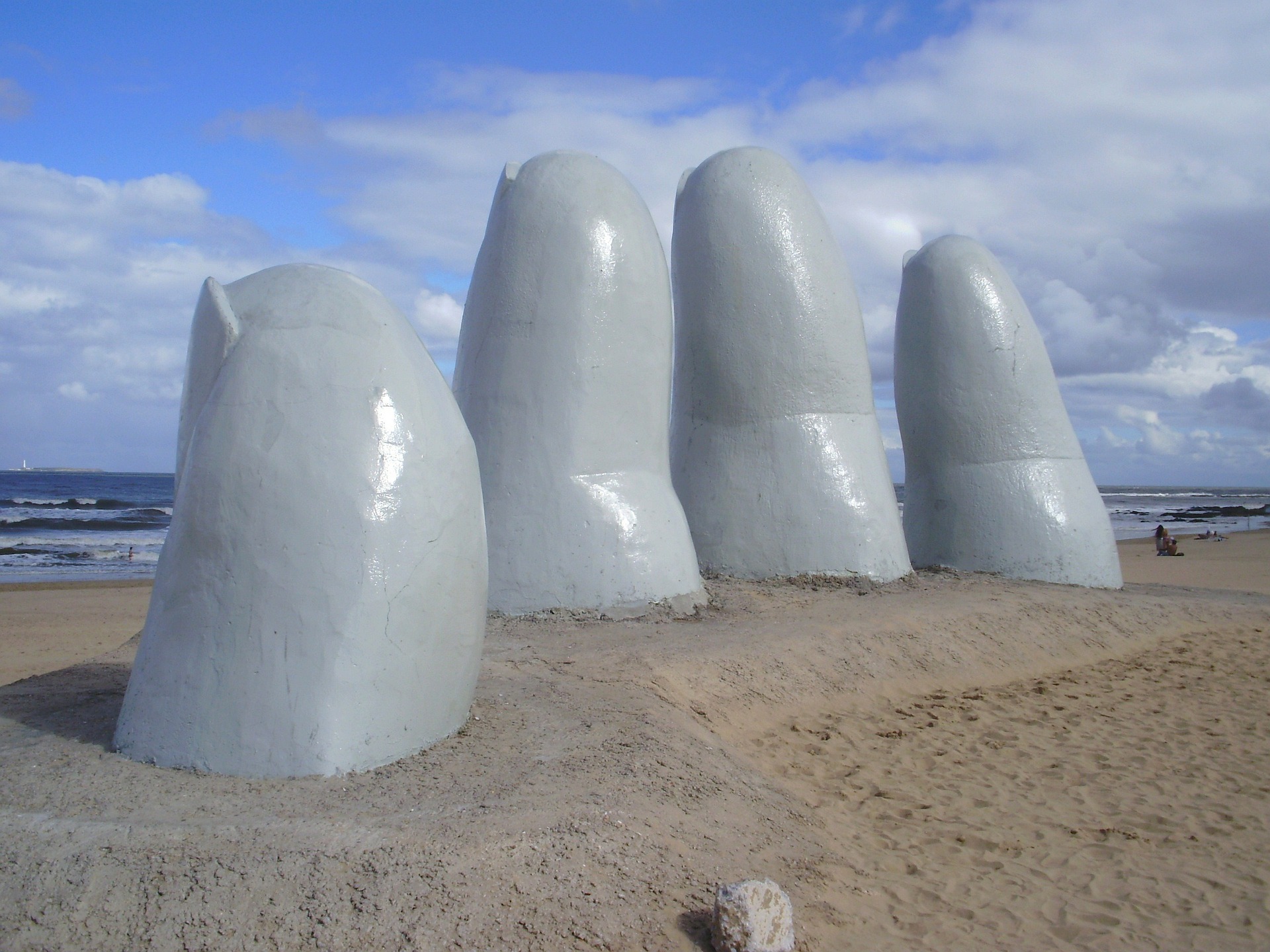22 Uruguayan Slang Words That You Probably Don’t Know

Get our free email course, Shortcut to Conversational.
Have conversations faster, understand people when they speak fast, and other tested tips to learn faster.
More infoLearning local slang is a great way to endear yourself to native Spanish speakers, and in the post, we’ll list the 22 most common Uruguayan slang words, so whether one day you find yourself drinking mate tea in Montevideo, wandering the quaint town of Colonia, or playing soccer with a Uruguayan amigo, you will have some Spanish slang to impress the locals.
Before we do so, below is a list of countries we already covered in our series of posts on slang you probably never heard of.
- Colombian Slang
- Venezuelan Slang
- Mexican Slang
- Spanish Slang (found in Spain)
- Chilean Slang
- Argentine Slang
And now, back to our originally scheduled program – Uruguayan slang!
Listo, chicos?
1) Abombao
What you call someone who’s dizzy-ish, or slow.
- ¿Qué tenés? Andás como abombado hoy – Are you okay? You seem kinda slow today
2) Apichonarse
To fall ill, or to feel despondent or sad.
- No sé qué trae, lleva todo el mes apichonado – I don’t know what’s up with him, he’s been beaten down the whole month
3) Astilla
Similar to “más o menos” (which means “more or less”), this is used when something is not quite bad, but definitely not good either.
- No me gustó mucho la receta, estaba como astilla – I didn’t quite like that recipe, it was not that good
4) Bagarto
This term comes from two words “Bagayo” and “Lagarto”, which are used to describe someone who isn’t quite pretty, only this term doubles down on being rude.
- Un bagarto se me estuvo insinuando toda la noche – A really ugly girl was hitting on me the entire night
5) Basurear
A verb which directly translates as “to trash around” but in Uruguayan slang is used to describe verbally mistreating someone, or having a rude attitude.
- No lo basurees así, sabes que no fue su culpa – Don’t treat him like that, you know it wasn’t his fault
6) Bo
In English, this may refer to a loved one. In Uruguayan slang, this word has a similar meaning to “bro” or “dude”, and is generally used to get someone’s attention.
- Bo loco, prestame unos pesos – Hey dude, lend me some money
7) Bosta
In most Spanish speaking countries, this means cow manure. In Uruguayan slang, it’s used to talk about something of really bad quality, which when you think about it, is close to the original meaning.
- Ese carro me salió bosta, me pasa por comprar lo barato – That car turned out to be extremely bad, happens you decide to buy cheap stuff
8) Cana
An informal name for police officers in Uruguay.
- Preguntale al cana si sabe la dirección – Ask the cop if he knows the address
9) Chuchú
Slang for chayote squash, a very common ingredient in Uruguayan cuisine. You’ll find it used in everything from purée to marmalade.
- Hoy tenemos chuchú para comer – Today we’re serving chayote
10) Da
A common way to express agreement, basically an alternative for “okay” or “alright”.
- Voy a salir, vuelvo en 20 minutos, da? – I’m going out, be back in 20, alright?
11) Gaucho
Most of us have a friend who we know we can trust with our lives. This is the Uruguayan slang word for that friend.
- Sos un gaucho, gracias de nuevo – You’re a trusty mate, thanks again
12) Empedarse
A verb to describe being completely wasted after drinking a few too many beers.
- Nos empedramos ayer en la noche – We got really drunk last night
13) FAAA!
How the Uruguayans express “wow”. You’ll use Faaaaaa! (or Paaaaa!) when you come across something that blows your mind.
- FAAAAA! No puede ser, no sabía que estaban casados – WOW that’s amazing, I didn’t know you were married
14) Jorobar
To be annoying or troublesome.
- Ya deja de jorobarme – Stop annoying me
15) Kilombo
An Uruguayan slang term you should be careful with, as it’s used in two different ways. It can be used to talk about chaos, crazy parties, or any kind of disorder. Alternatively, it is sometimes used to refer to a brothel.
- Las personas estaban tomando, y luego de un rato, la fiesta se convirtió en un kilombo – People were drinking, and after a while, the party turned into chaos
16) Matear
You can’t mention Uruguay without mentioning their famous mate-tea. This term is used as a verb to describe the action of drinking mate.
- Estaba mateando cuando llegaste – I was drinking mate when you arrived
17) Pelotazo
Uruguayan slang term for lies or exaggeration that is normally used to call people out.
- Me estás diciendo puros pelotazos – You’re telling me only lies
18) Plancha
Best to save this word when describing an ill-mannered individual with a poor dress sense. His attire likely entails odd looking combinations, that may be affiliated to a gang.
- Ese tipo es un plancha terrible – That guy really has poor taste for dressing
19) Salado
Its literal meaning is salty, but it’s a multi-use slang word and depending on the context, it can refer to something difficult, amazing or gigantic. Sometimes people will ask you to clarify it, since it’s intended meaning might not be clear.
- -Bo, qué salado ese auto
-Pero, salado bien o mal?
-No, salado bien
-Man, that’s a sick car
-But, sick good or sick bad?
-Nah, sick good
20) Ta
Scattered through the Uruguayans’ sentences, another version of “ok” that has pretty much become filler word or an interjection
- Nos encontramos en el centro comercial, ta? – We’ll meet on the mall, ok?
21) Terraja
An individual who generally has poor taste, be it music, food, clothes, etc.
- Que tipo tan terraja! – That guy has such bad taste
22) Zambear
A verb used when someone is trying to come up with excuses, and lying to get out of an uncomfortable situation.
- Creo que me estaba zambeando, ayer te dijo algo distinto – I think he was trying to lie, he said a completely different thing to you yesterday.



